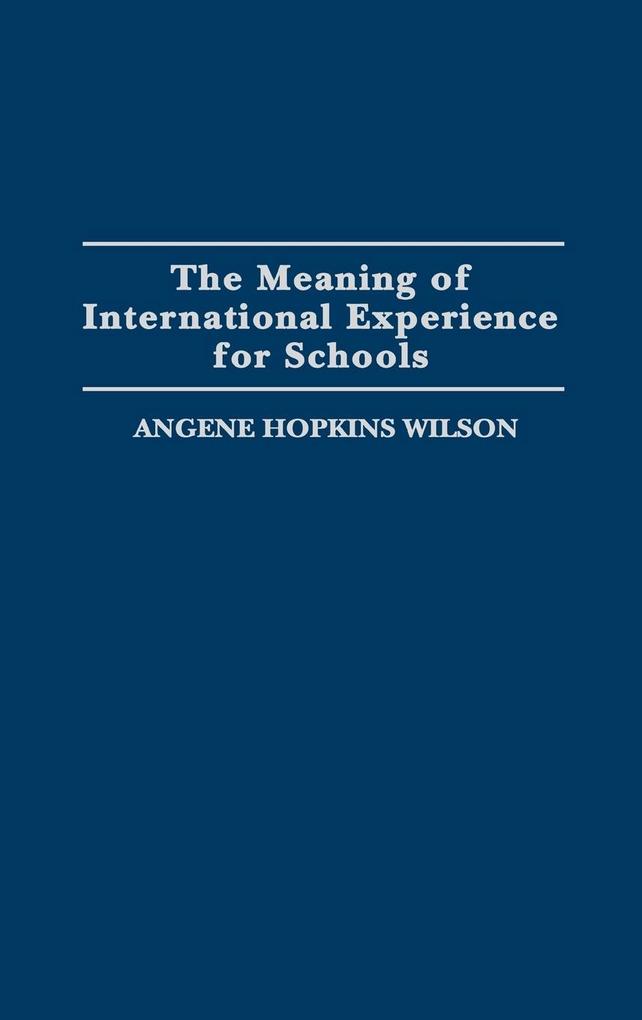
Zustellung: Mo, 26.05. - Fr, 30.05.
Versand in 1-2 Wochen
VersandkostenfreiBestellen & in Filiale abholen:
Angene Hopkins Wilson presents case studies which illustrate how internationally experienced persons--including teachers who have travelled and lived abroad, returned Peace Corps volunteer teachers, and immigrant and international students--contribute to the curriculum in their schools. In an affluent suburban elementary school, an impoverished rural middle school, and an inner-city magnet high school program, Wilson examines how school systems, teacher education programs, and communities can cooperate in efforts to provide social education with a global perspective. She discusses problems such as the ambivalence of school culture towards international experience and the tension between cultural loyalty and world citizenship, offers a model explaining the impact of international experience and makes specific suggestions for using international experience more fully in the schools.
Inhaltsverzeichnis
Introduction: From Lakewood to Liberia to Lexington
International Experience and Schools: The Context and the Problems
The Impact of International Experience
Teachers with International Experience: "They Know More"
Returned Peace Corps Volunteers Who Teach: Fulfilling the Third Purpose
An Afghan Sixth Grader: "Making My Country Remembered"
A Little United Nations School: It's a Natural
International Student Visitors at School: "Someone from Another World"
The International Studies Academy: Becoming an International Educational Community
Utilizing International Experience: Ideas for Implementation
Appendix
Bibliography
Index
International Experience and Schools: The Context and the Problems
The Impact of International Experience
Teachers with International Experience: "They Know More"
Returned Peace Corps Volunteers Who Teach: Fulfilling the Third Purpose
An Afghan Sixth Grader: "Making My Country Remembered"
A Little United Nations School: It's a Natural
International Student Visitors at School: "Someone from Another World"
The International Studies Academy: Becoming an International Educational Community
Utilizing International Experience: Ideas for Implementation
Appendix
Bibliography
Index
Produktdetails
Erscheinungsdatum
28. Juli 1993
Sprache
englisch
Seitenanzahl
176
Autor/Autorin
Angene Hopkins Wilson
Verlag/Hersteller
Produktart
gebunden
Gewicht
435 g
Größe (L/B/H)
240/161/14 mm
ISBN
9780275945084
Bewertungen
0 Bewertungen
Es wurden noch keine Bewertungen abgegeben. Schreiben Sie die erste Bewertung zu "The Meaning of International Experience for Schools" und helfen Sie damit anderen bei der Kaufentscheidung.











